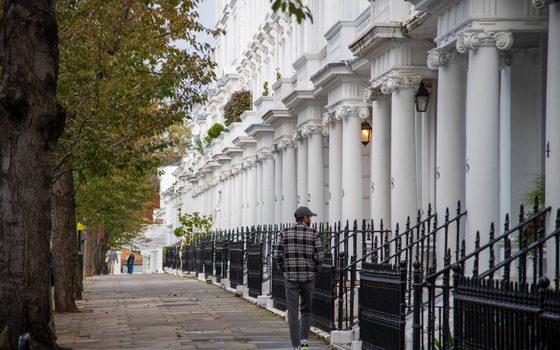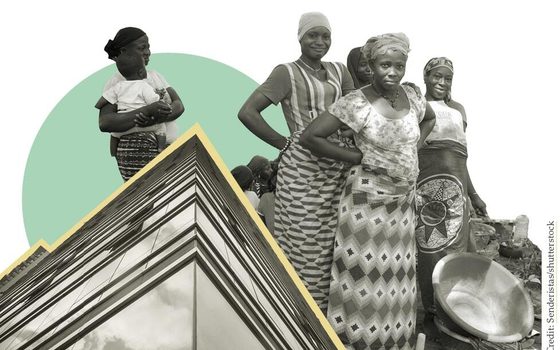Scrapping two-child limit would reduce economic cost of poverty by £3.2bn
Government fiscal rules and assumptions are failing to take into account the true economic benefit of lifting children out of poverty
20 October 2024
Scrapping the two-child limit would reduce the economic cost of child poverty by £3.2bn a year by the end of the current parliament, new analysis by the New Economics Foundation (NEF) has found.
As the Chancellor continues to resist pressure to lift the two-child limit, NEF researchers have argued the government is failing to account for the wider economic benefits that would result from lifting children out of poverty.
In a new paper published today [Sunday 20 October], analysis suggests lifting the two-child limit would increase the incomes of low-income families by £1.9bn in 2025/26, rising to £2.6bn in 2029/30 and generate an additional £1.1bn of economic growth in 2025/26, with poorer communities on average benefiting twice as much as richer areas.
However, the researchers go on to argue that there would also be wider economic benefits that are not currently considered by the Office for Budget Responsibility. Similarly, to ensure at least the medium-term benefits of poverty alleviation are accounted for in government decision making, the current five-year timeframe for the fiscal rules must be extended.
The paper says that if the two-child limit were scrapped, the reduction in child poverty by the end of parliament would:
- Lower demand for public services by £1.7bn a year in the medium term
- Result in higher annual net earnings by £1bn over the longer term, with an additional £540m returned to the government through taxation and lower spending on social security.
Meanwhile, scrapping both the two-child limit and the benefits cap would reduce the economic cost of child poverty by a total of £4.0bn a year by the end of this parliament. If the caps are retained, the analysis finds 49% of children in larger families will be living in poverty by the end of the parliament.
The paper also finds that cities and towns in the north and the Midlands would receive the biggest economic boost from scrapping the two-child limit.
Constituencies in Birmingham, Bradford and Bolton would each receive an immediate boost of around £10m a year if the policy was scrapped. Currently families miss out on almost £3,500 a year for every child they have over the limit.
Report author Sam Tims, senior economist at NEF, said:
“The two-child limit is a cruel policy that not only keeps families in poverty but holds back people and places from achieving their economic potential.
“It’s clear that scrapping the two-child limit and the benefit cap are two of the most effective levels the state can pull to lift children out of poverty and a necessary investment for a government that wants to boost growth across the country.
“The long-term benefits of scrapping these policies, including easing pressure on our crumbling public services and boosting the future earnings potential of children in poverty, would help ensure prosperity in parts of the country that have been held back for far too long.”
The paper sets out how the OBR are likely to undervalue to benefits to the economy if both these caps are scrapped. The OBR would estimate a £1.5bn GDP increase in the first year, which would then disappear completely by year five.
However, NEF researchers argue this fails to consider both the impact on public services and the greater earning potential later in life. The paper suggests extending the timeframe for their modelling from the OBR’s current five years to 20 – 25 years.
ENDS
Contact
James Rush – james.rush@neweconomics.org
Notes
Constituencies in Birmingham, Bradford, and Bolton are the most impacted by the two-child limit
Number of children impacted by the two-child limit, and total income lost in the 10 most impacted constituencies in England and Wales in 2025/26 based on April 2024 caseload
Constituency | Children impacted by the two-child limit | Income lost |
Birmingham Ladywood | 10,100 | £11,900,000 |
Bradford East | 9,400 | £10,600,000 |
Bradford West | 8,600 | £9,800,000 |
Bolton South and Walkden | 8,300 | £9,800,000 |
Birmingham Hodge Hill and Solihull North | 7,900 | £9,400,000 |
Leeds South | 7,800 | £9,000,000 |
Blackley and Middleton South | 7,400 | £8,600,000 |
Walsall and Bloxwich | 7,100 | £8,200,000 |
Gorton and Denton | 6,900 | £8,200,000 |
Blackburn | 7,200 | £8,200,000 |
Source: NEF analysis of FOI 53647 and 92542
Note: Estimates for child tax credit is imputed using national totals and constituency level data for universal credit. We assume no interaction with the benefit cap in calculating lost income. Lost income calculated by number of child elements removed
The New Economics Foundation is a charitable think tank. We are independent of political parties and committed to being transparent about how we are funded.
Topics Social security Inequality






